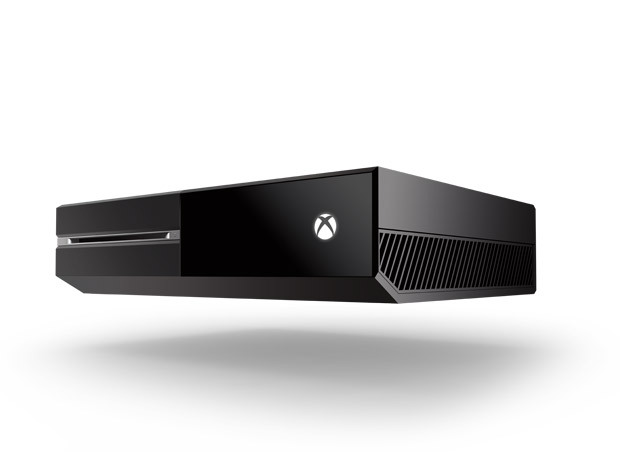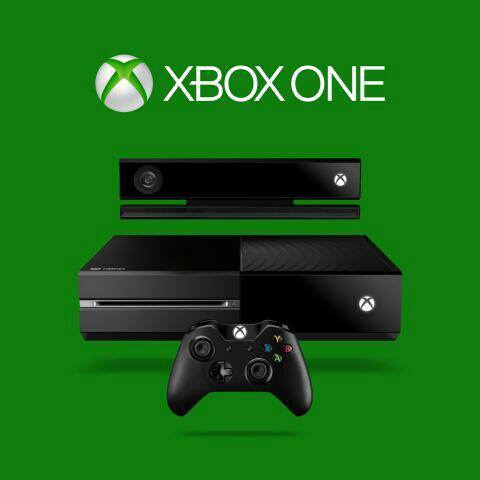Last updated on May 22, 2013
I’m not sure what anyone expected when watching this particular “reveal” press conferences (other than fake clapping, but the less said about that the better). Said press conferences exist for the press, i.e., the news journalism surrounding it. You. the “gamer” reading this, does not fit into the equation. Why do we even read press outlets anymore, you might ask? Well, we need people to tell us what to think and how to think about it, obviously! Disregarding the intended sarcasm, journalism’s a business like any other; one might wonder why journalists even exist with the Internet, where I can instantly communicate with people from around the globe and find the news on Facebook, Twitter, or any vast number of social media sites.

Think of it this way: you get all the fuzzy, warm feeling of objective news coverage while game companies manipulate public opinion regarding their product. It’s the only explanation for Metacritic score, and also determines what become the “height” of our “medium”. We might not have an elitist aristocracy determining what art should and should not be made by comission, but having a secretive cabal run by money instead doesn’t help matters. How bizarre, but true. As this article states, if not in evidence but in logically deductible terms:
But with the arrival and rise of the internet, the need for the news sections of game publications vanished overnight — though hardly anyone seemed capable of grasping this fact. Each game company immediately established an online presence with its own dedicated website, and began designing dedicated sites for each and every one of their upcoming games. Because of slow connection speeds and high webspace and bandwidth costs, these sites were at first rudimentary, containing little more than a handful of screenshots and a few paragraphs of text, but it wasn’t long before those technical difficulties were overcome, and official websites became extremely sophisticated, capable of delivering more information on each title, and of a much higher quality, than any all-purpose gaming site or magazine.
With the arrival of the internet, in other words, a direct link between game companies and gamers was established, rendering news publications obsolete. Why, then, over a decade later, are they still in business?
The reason they are still in business is because they have in the meantime struck a deal with game companies, under the terms of which the companies are to feed them information at regular intervals, while WITHHOLDING IT FROM THEIR VERY OWN OFFICIAL WEBSITES until such a time as this information has become practically worthless. If you think I am just cooking up conspiracy theories, ask yourselves: How on earth is it possible for sites such as LameSpot, Euroidiot or Fanitsu, to get hold of a screenshot or video clip of a game before the very people that are making it? Even if these websites employ superspies that break into the offices of these companies and steal screenshots and videos every week — surely, these screenshots and videos were made at least a few hours before being stolen, and surely the people that made them could very easily upload them to each game’s official site within a few seconds — either sometime before they were stolen or shortly afterwards.
And yet they never do. They never upload these screens and videos (and in-depth mechanics explanations) to their very own websites because if they did they would have no “exclusives” to bargain with in their negotiations with magazines and websites — no bargaining chips with which to secure magazine covers or extended frontpage time. (Of course these “exclusives” are not the only bargaining chips the companies have at their disposal. Or, to put it another way, ALL companies have these chips, but the bigger, more powerful ones have another, additional kind of chip: that of advertising.)
I’ve always found the Internet a strange device that hasn’t been utilized to its full potential. Then again, businesses also need to make money, and the best way to make money comes from, apparently, keeping games journalism outlets in business far beyond their real, actual shelf date. The moment control came to the people (or the riffraff, as some might call them), the people in charge of video game marketing and creation immediately took it back through this control of information.
I imagine we could say the same of America in general, what with the high price of Internet connections past a dial-up hook and the increasing price of data plans with the advent of smart phone usage. Simply put, every news media outlet doesn’t exist for the purpose of information as you might think it does; rather, that’s the perception they give off. What they sell you is either a product or an agenda, and it’s up to the individual to accept the narrative displayed or reject it utterly.

It may just dawn on you that, perhaps, you just got hoodwinked. In fact, we’re all so blind that we can’t even see it anymore, and we wonder why these press conferences don’t directly apply to our needs. But they DO apply to the consumer who’s interested in TV, sports, and Call of Duty (and dogs, German Shepherds specifically) – that is, the primary audience Microsoft’s targeting this time around. Gaming isn’t a viable market in itself anymore; the boom came and went. Console producers other than Nintendo (whose low costs and successful policies will keep them alive) need an exit strategy because their product does not create enough profit for such a large investment. They need to branch out.
The AAA games business model can’t work; it’s shot, kaput, done. Video game companies, in their process of realization, understand they’re under a dying business model. Consoles get recast as media boxes and Call of Duty machines to sustain them while the next set of consoles becomes a media device with a subsection for gaming. The media box becomes your future.
That, in effect, demonstrates that weird disconnect people feel towards these conferences. Let’s be honest: video games aren’t the focus of the Xbox One reveal except for the wonders of Call of Duty: Ghost and its exquisitely rendered Navy SEAL dog. Rather, Microsoft wants to sell the consumer what it thinks it wants: sports, television, maybe a Halo game, and graphics. For the most part, one would imagine their focus groups tell the full story of why this conference focuses so much on the general interest consumer and/or stockholders, and not so-called “hardcore gamers”.
To everyone’s surprise in their narcissistic universe, gamers don’t make or break triple AAA titles and their success. The ordinary consumer does – that much feels pretty obvious. The companies that originally created innovative games slowly creep out of existence as budgets increase. Indie games only alleviate this problem somewhat, as they don’t solve the definite problem of creating continual consumers and a market for video games in general.
Imagine, for a moment, that the current console wars just die out. PCs remain a functional market, and all that’s left are indie games. Are they creating new consumers? Will they turn video games into a booming business again that also advanced 3D graphics technology? Probably not, in all likelihood. People who play indie games already play video games. They’re not creating converts, and that’s what everyone fails to realize: the market’s starting to shrink in terms of the magical “hardcore gamer”.
Otherwise, Microsoft and Sony are completely tone deaf, but I doubt that’s the case with billion dollar companies, wouldn’t you say? Whether it speaks to a particular demographic isn’t their concern. Their concern is that you identify with the product and feel ownership of a brand name you don’t even own, and gamer’s response to these press conferences show that they succeeded wholly and utterly in doing this!
So they’ve won, for the time being. As Christians, though, we can and should do better than to be taken in by the media campaigns of game companies. We should be thinking independently and exhaustively about what cultural devices and norms we accept, yet we really don’t. We often get taken in by the most underhanded of tactics and debate forms (homosexuality, sexism, etc), and accept our society’s norms without first consulting the Bible. Does this make sense? Not really! After all, when we become Christians, our mind should be renewed, yes? Romans 12 says as much:
Therefore I urge you, brethren, by the mercies of God, to present your bodies a living and holy sacrifice, acceptable to God, which is your spiritual service of worship. 2 And do not be conformed to this world, but be transformed by the renewing of your mind, so that you may prove what the will of God is, that which is good and acceptable and perfect. 3 For through the grace given to me I say to everyone among you not to think more highly of himself than he ought to think; but to think so as to have sound judgment, as God has allotted to each a measure of faith.
God gives us the tools, in our particular situations, to discern the actual state of things. If you think of Christianity as merely a “way of life”, you’re doing it wrong. The Christian worldview implores its adherents to apply that worldview to everything. For a few years there, for example, I didn’t think there was much difference whether or not humanity came about by creation ex nihilo or evolution. After all, God could certainly do both, right? Yet either one also implies a difference in the manner of our creation – either a special, purposeful one, or one arising out of a generic process of life creation. That makes a big difference in how we view ourselves and, subsequently, our fellow human beings. My neighbor’s not a man or woman created out of a random process called natural selection, but a special creation.
Obviously, you can make the case that evolution and Christian theology don’t necessitate mutual exclusivity (go look at Thomas Aquinas and that’s made pretty plain under an Aristotlean philosophy model), but the point’s made. We need to remove ourselves from our surrounding culture to think about it and counter it in a Christian way. It doesn’t make sense otherwise.
Also, this does rather explain why I’m not that excited about Xbox One. Oh well!
